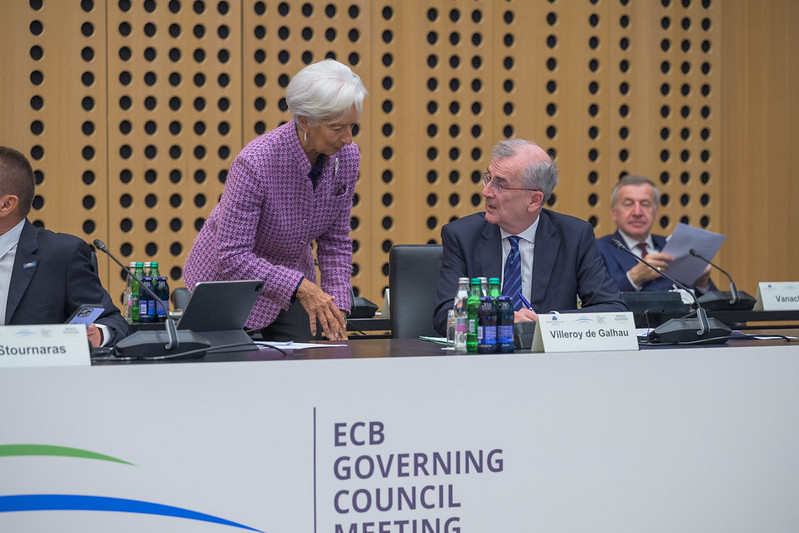ECB’s Villeroy: Should Cut Next Month, Shouldn’t Exclude Following Meetings for Possible Cuts
28 November 2024

By David Barwick – FRANKFURT (Econostream) – European Central Bank Governing Council member François Villeroy de Galhau on Thursday said that the ECB should cut at the next monetary policy meeting and leave itself the option to do so at subsequent ones as well.
In a speech at the Euro50 Group’s 25th anniversary at the Banque de France, which he heads, Villeroy largely repeated previous remarks on current monetary policy, calling for ‘full optionality’ in terms of rate cut size and frequency.
‘Seen from today, there is every reason to cut on December 12’, he said, reiterating that the size of the cut should be left open.
‘Optionality also means that, for the following meetings, we shouldn’t exclude any of them for possible cuts’, he continued. ‘Stating so the obvious, I don’t mean to precommit to cut “back to back” in each of these meetings: this would be a renewed and excessive forward guidance. We should stick, as we did in October, to what I call an “agile pragmatism”, data driven but not timid.’
With price stability durably reestablished ‘in the near future’ – Villeroy suggested that this might mean ‘already early 2025’ – and activity feeble, there would be no justification not to ultimately take interest rates to the neutral rate, he said.
This meant between 2% and 2.5%, he said. Going yet lower could not be ruled out ‘if growth were to remain subdued and inflation at risk of falling below target’, he said.
Particularly in the case that growth remained weak, there would be a risk of inflation undershooting, he said.
As previously, Villeroy suggested that ‘now that we are getting back to a more “normal” inflation regime, our communication could become more “forward-looking”.’
In this context, he called again for ‘soft signalling’ in which the ECB would make clearer its reaction function.
‘When [ECB President] Christine Lagarde said, “The direction of travel is clear and what we have done starting in June is the sensible approach and should be continued”, this is a good example of soft signalling’, he explained. ‘I believe that we could now adapt our language in this direction.’
